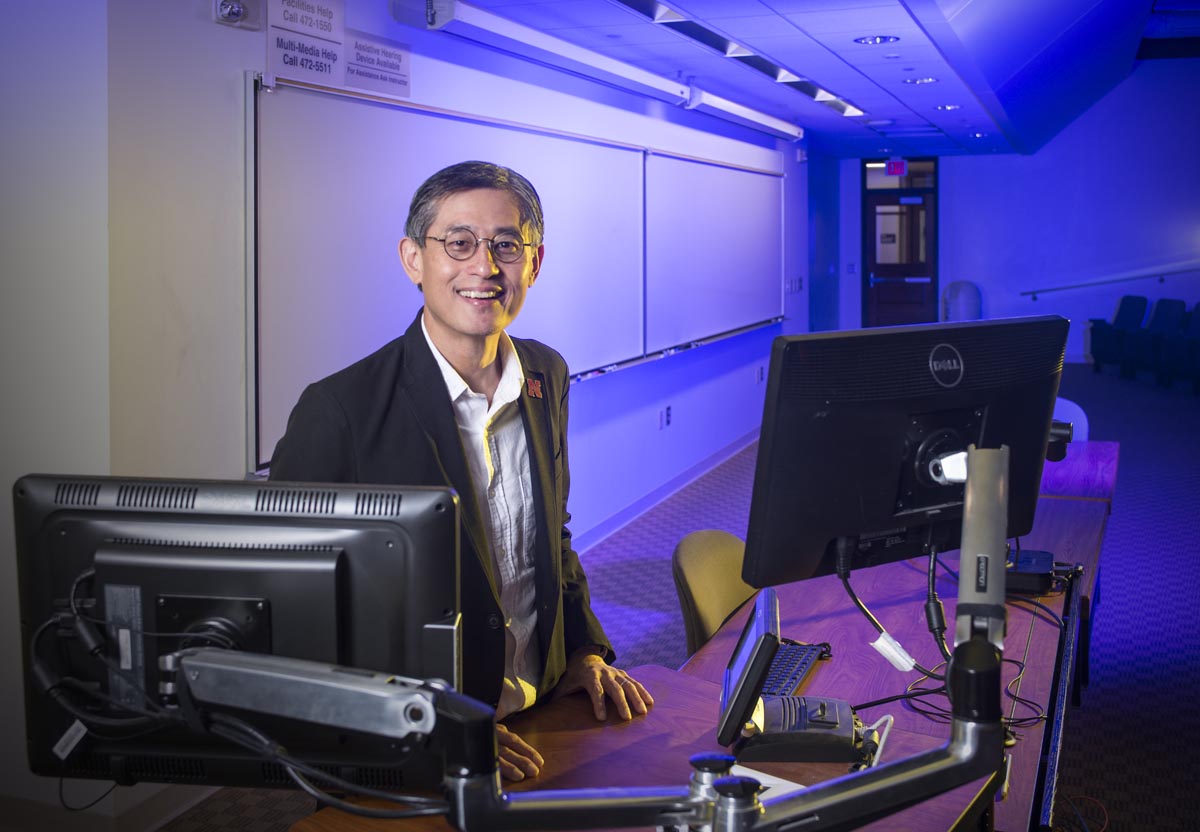
School of Computing Charles Bessey Professor Leen-Kiat Soh has received a new grant from the National Science Foundation to expand his work on a previous artificial intelligence project.
In collaboration with former University of Nebraska–Lincoln graduate student, Adam Eck, now an associate professor at Oberlin College, and researchers at the University of Georgia, Soh and his team will broaden their research efforts on a 2019 project that examined multi-agent, decentralized planning where agents jointly complete tasks. The team explored automating action sequences to maximize rewards in scenarios involving multiple tasks and agents, particularly in cases in which teamwork was required, but agents had limited or no communication with each other.
“We were interested in how agents can carry out teamwork without any coordination,” Soh said. “In real-world situations that are more impromptu or ad-hoc, they might not have coordination or communication, and as a result, their actions, if not planned a priori, may not be optimal.”
In this second project, the team will add additional elements of uncertainty into the mix and explore how tasks and decision-making can still be optimized among groups of actors when key situational factors, others’ actions, and agents’ intentions are unclear and changing.
“To make optimal decisions, uncertainty has to be incorporated into the decision making,” Soh said.
Soh compares this research to communication prior to the invention of cell phones, when thorough plans had to be made prior to taking any actions. If two people planned to meet, they would decide on a specific time, place, and perhaps even distinctive attire in advance. Often, they also needed to form contingency plans so that if one person did not follow plans or show up on time, alternative actions would then be taken.
“There are still real-life scenarios where you don’t have the luxury to communicate or coordinate with the others during the execution phase, and you have to consider all possible scenarios beforehand, during planning,” Soh said.
In the first project, Soh and his team examined scenarios that involve agent openness, in which agents could enter and exit a scenario. In the new project, the team will also study two additional forms of openness: task openness, which accounts for existing tasks disappearing from an environment and new tasks appearing in an environment, and type openness, which accounts for changing capabilities or intentions of agents.
“Type openness was inspired by our solutions from the first project, in which we discovered agents can change and learn,” Soh said. “Agents can acquire new skills or move to a new position or role, so our intentions and behavior change even though we’re the same person.”
All three forms of openness occur in real-world environments, such as human organizations, disaster responses, and smart transportation systems, but their important role and potential complications have been studied surprisingly minimally in the artificial intelligence field.
“The more uncertainty is involved, the more variables you have to consider, and suddenly this expansion becomes so big and unmanageable,” Soh said. “A typical challenge we have is how to come up with scalable algorithms such that we can compute or estimate the quality of a plan quickly to ultimately identify the optimal actions.”
Soh and his team will work to develop more scalable algorithms with the resources of the Holland Computing Center, using supercomputers to run extensive simulations of multiple possible scenario outcomes. The team will also identify possible checkpoints where the best options could be identified and others eliminated in order to minimize creation of unnecessary simulation branches.
Soh said while adding more layers to the research also adds new challenges, it ensures solutions will be more accurate and helpful for those who will benefit from them.
“The added openness resembles the real world even more, so we’re moving toward more realistic challenges and applications, and that means solutions that are even more usable.”